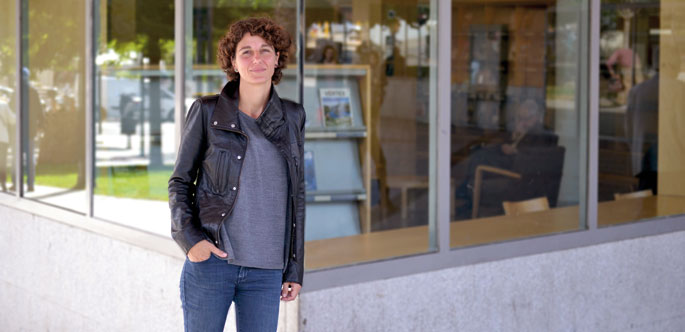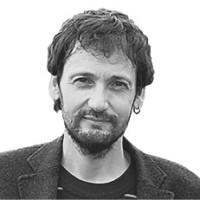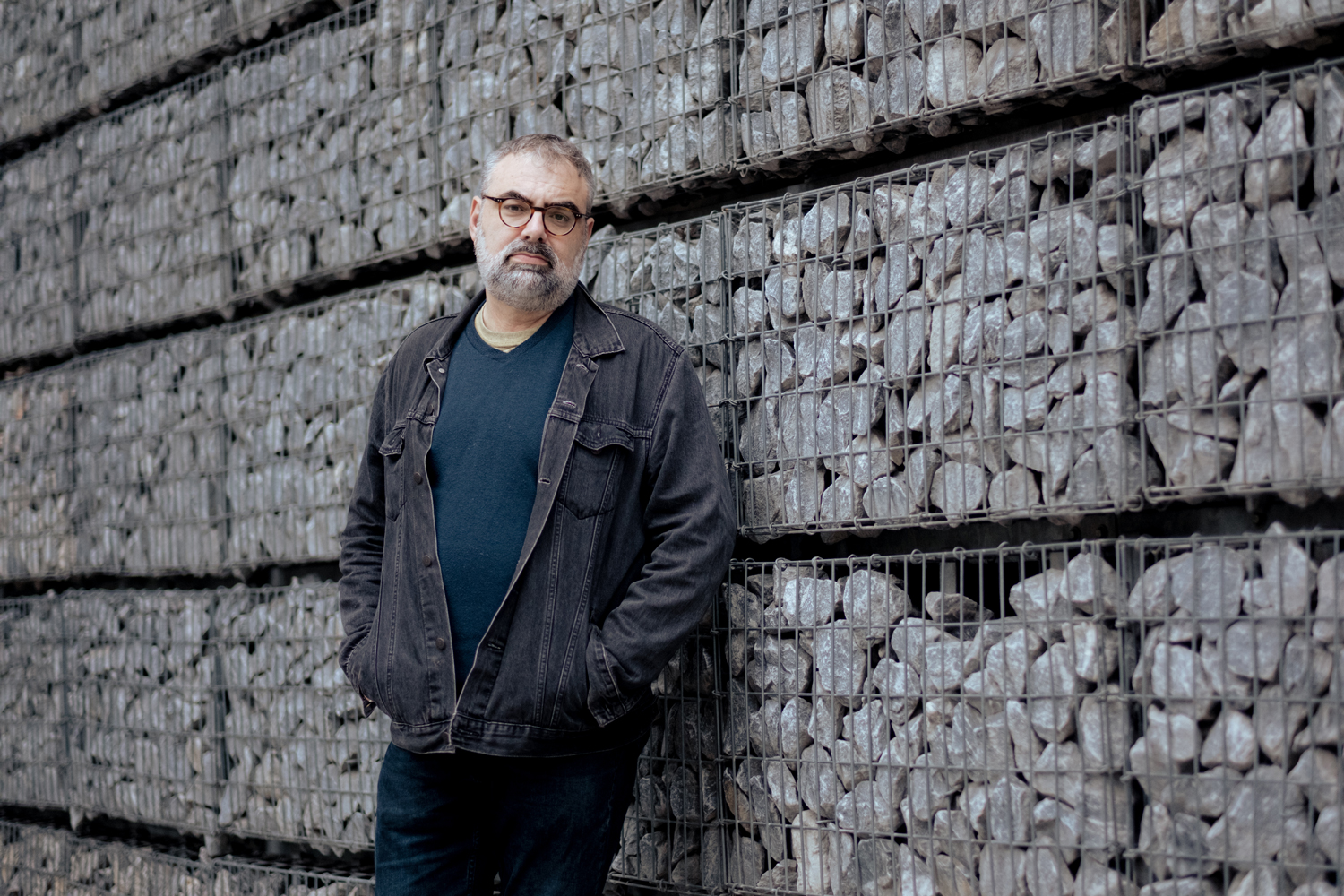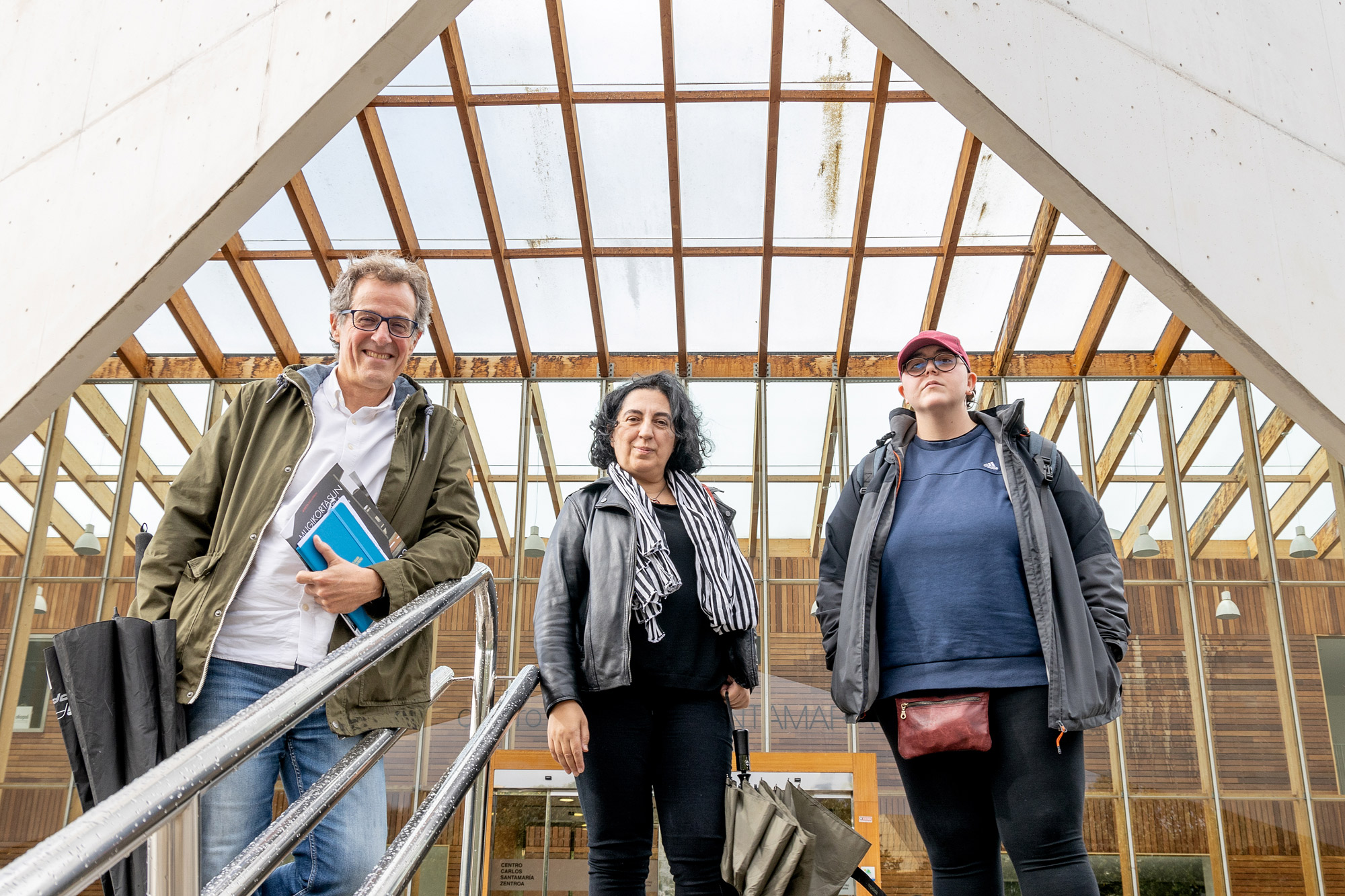"One of the most interesting changes we're going through is the politicization of life."
- Teaching, writing, children and practical, critical and collective thinking are the main tasks of Marina Garcés philosophy. Professor at the University of Zaragoza, has been in the activism of Barcelona for years, always attentive to the necessary links between human beings. Not in vain, because that is where our personal and collective freedom takes place.

What are the questions that philosophy should answer today?
It is said that philosophy always raises the same questions, and that is true. But the same questions mean different things depending on the context. Today's has a radically new component: to begin with, we live in a world where European consciousness is no longer a universal consciousness. And philosophy has to focus on the usual questions, but on the relationship with others, on the relationship with those who have thought them differently. Then, let us not forget the most important issue of our time: not only do we live in a global world, but also on an exhausted planet. In this way, questions as simple as how to live, how to think, how to act, recreate the experience.
Are these elements the ones that have led to a greater involvement of philosophy in public debate?
On the one hand, there is an institutional crisis of philosophy: academization does not respond to the challenges of our time, philosophy has closed itself, the market has driven it out of the educational system. On the other hand, a social revitalization of philosophy or thought is taking place. The civilizing crisis we are experiencing generates the concern to seek important questions so as not to lose them in the general pastime. There is a demand for philosophy that is a symptom of the need to think about what matters.
Combine the Academy with activism.
Philosophy is for me an active life: one thinks of life and one lives thinking. Philosophy is also an experimental action, it puts us at the limit of who we are, what we know, what we think, it offers us some tools to experience life. And philosophy is also for me the expression of a commitment, far from the idea of the philosopher who lives in the clouds, has always been the expression of commitment to the collectivity. Philosophy is not onanist, it is born as dialogue, as an interpellation, as a meeting point. And it's done from different walks of life. In my case, teaching, activism and experimentation.
What you said: you think and the world changes as food is celebrated.
The asphyxiation that philosophy is suffering comes from losing contact with life. In our society, the boundaries between public and private space have been blurred. Distribution has a long tradition: the word in public life is alien to the areas of our production, reproduction, work, daily life, while the house is a private space, a space of individual conscience, of private life. One of the most interesting changes we're going through is the politicization of life, which we're thinking about from life.
Thus, new subjects, new cartographies, new grammar have emerged.
One of the things that has had the most influence on feminism, not so much to have achieved levels of rights and demands, but to have changed the way we understand ourselves as political subjects. In the first line is situated what has been rejected within the walls of the house, care, interdependence, vulnerability, the relationship between the body, the word and thought. Political action is not only in institutions, but in life, in the bare sense of the word.
You give importance to your own speech.
Those who put problems find solutions. Reactive politics, the culture of protest, are important. But if you only respond to what power does, it will always have the ability to create reality. Changing the agenda is not a change of agenda, but a change of problems. What are the problems of our time that really matter to us? If politics can start doing other things, you have to make that shift.
And we're all committed to the world we live in.
We have inherited a subject who looks at the world, who decides to intervene, transform, make revolution. Compromise would therefore be a voluntary action, but always in relation to something that is out there. That does not make sense today. In the displacement we are making, we discover the interdependencies, the bonds, the relations, a singular but also plural subject. It has passed to the new generations, why it has committed itself to this and not to the other. The key is to discover that we are united and therefore committed.
We're nothing without each other, but how do we make that common life?
We cannot stop talking about what happens to us: we have to talk about what happens to us. Just by doing so, you can get words, theories, illusions that open up less crushing and fair relationships with the world. And we live in a time when that "how" has so many answers.
Aldaketa soziologiko inportante bat bizitzen ari gara: tradizionalki, intelektualaren figura klase eta genero kondizio bati lotuta zihoan, lanetik liberatutako figurak ziren, etxeko lan eta erreprodukzio lanetatik liberatutakoak. Orain, pentsatzen eta idazten dihardugun pertsonak prekarioak gara, gizon-emakumeak, bizitza materialarekin erlazio zuzena duen erregimen batean bizi garenak. Bere hitz askearekin agertzen zen intelektualarengandik oso urrun, gaur gure hitza ez dago aske, ez ekonomiarekiko mendekotasunetik, ez etxeko bizitzarekin edota bizitza materialarekin dugun tratu zuzenetik. Eta dena aldatzen du horrek. Tendentziak aldatu direla esaten da, baina ez, pentsatzen dugun lekua da aldatu dena. Eta gaur hortik ari gara pentsatzen, leku hartzen, konprometitzen, kolektiboki bizitzen.
Epistemology, or theory of knowledge, is one of the main areas of philosophy, and throughout history there have been important debates about the limits and bases of our knowledge. Within this we find two powerful corridors that propose different ways of accessing knowledge: The... [+]
Entrepreneurship is fashionable. The concept has gained strength and has spread far beyond economic vocabulary. Just do it: do it no more. But let us not forget: the slogan comes from the propaganda world. Is the disguise of the word being active buyers? Today's entrepreneurs are... [+]
Isn't it a sign of pride to look at the people in front of me as if they weren't people? Yes, of course yes. But how can we expect others to understand? Understand, observe, look. Does wanting to understand others not require this proud attitude? Knowing what it is to be a person,... [+]
Are we running out of shame? This is the diagnosis of several authors today. Is there no longer a look that can embarrass us? Another thing that Jean-Paul Sartre described in 1943 around shame is that on the other side of the lock, with the eye stuck in the key slot, a person is... [+]
Predicting the end of anything has become fashionable. The end of the human being, ideologies, community, authority, philosophy, or democracy. Are they labels full of sensationalism?
Maybe it was Francis Fukuyama who started that final fashion. After the collapse of the Berlin... [+]
The most promising futures are more concerned about the future than the long-term ones. It's the CCCLXIX law of life. It seems like a mouthpiece, but the laws of life I don't write them, but life itself.
That law, like all authentic laws, has exceptions, but what exceptions are,... [+]
Today there are many apps to buy friends: The best known are AlquiFriend and Ameego, which seem to work very well, especially in the big cities of the United States. They have about 600,000 users. Pay 120 dollars to someone and for a couple of hours you go to the restaurant... [+]
The body issue has gained weight in current speeches, it appears to us in many ways. However, these are relatively recent debates in which the body has been quite marginalized in the history of Western thought compared to other times.
To me the truth is that they help me apply... [+]
















